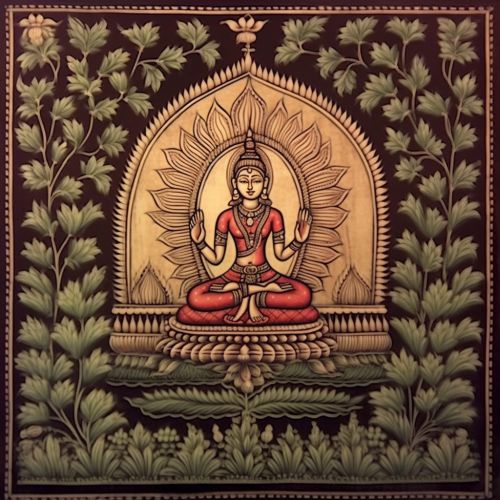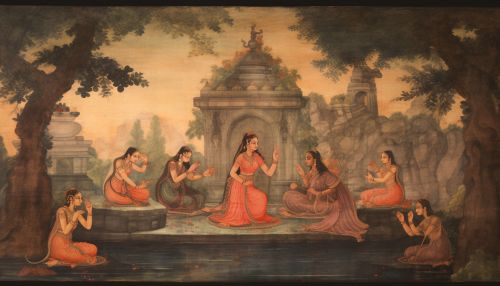Samaveda
Introduction
The Samaveda (also spelled Sama Veda) is one of the four Vedas, the ancient Hindu scriptures. It is a collection of melodies and chants, and is also known as the "Veda of Chants" or "Knowledge of Melodies". The Samaveda is unique among the Vedas, as it is purely liturgical in nature, its verses intended to be sung rather than recited.
Origin and Composition
The Samaveda is believed to have been compiled around 1200 to 1000 BCE, during the Vedic period. It is derived from the Rigveda, and its verses are directly taken from the Rigveda, albeit arranged in a different manner. The Samaveda consists of two major parts: the "Purvarchika" (First Archika) and the "Uttararchika" (Last Archika). These two parts are further divided into several books or chapters, known as "Samhitas".


Structure and Content
The Samaveda is composed of 1,875 verses, most of which are taken from the Rigveda. The verses are arranged according to their use in the soma sacrifice, a ritual offering to the gods. The Samaveda is primarily a songbook, and its verses are meant to be sung using specific melodies and chants. The melodies and chants in the Samaveda are known as "Samans", and they are considered to be a form of musical notation.
Significance and Role in Rituals
The Samaveda plays a crucial role in the Vedic rituals. The chants and melodies of the Samaveda are used in various religious ceremonies and rituals, particularly the soma sacrifice. The Samaveda is also significant for its emphasis on sound as a means to connect with the divine. The chants and melodies of the Samaveda are considered to have a spiritual significance, and they are believed to bring about a state of meditative focus and spiritual connection.
Influence on Indian Music
The Samaveda has had a profound influence on Indian music. The melodies and chants of the Samaveda form the basis of Indian classical music. The concepts of raga (melody) and tala (rhythm) in Indian music can be traced back to the Samaveda. The Samaveda is also considered to be the earliest source of Indian musicology.
